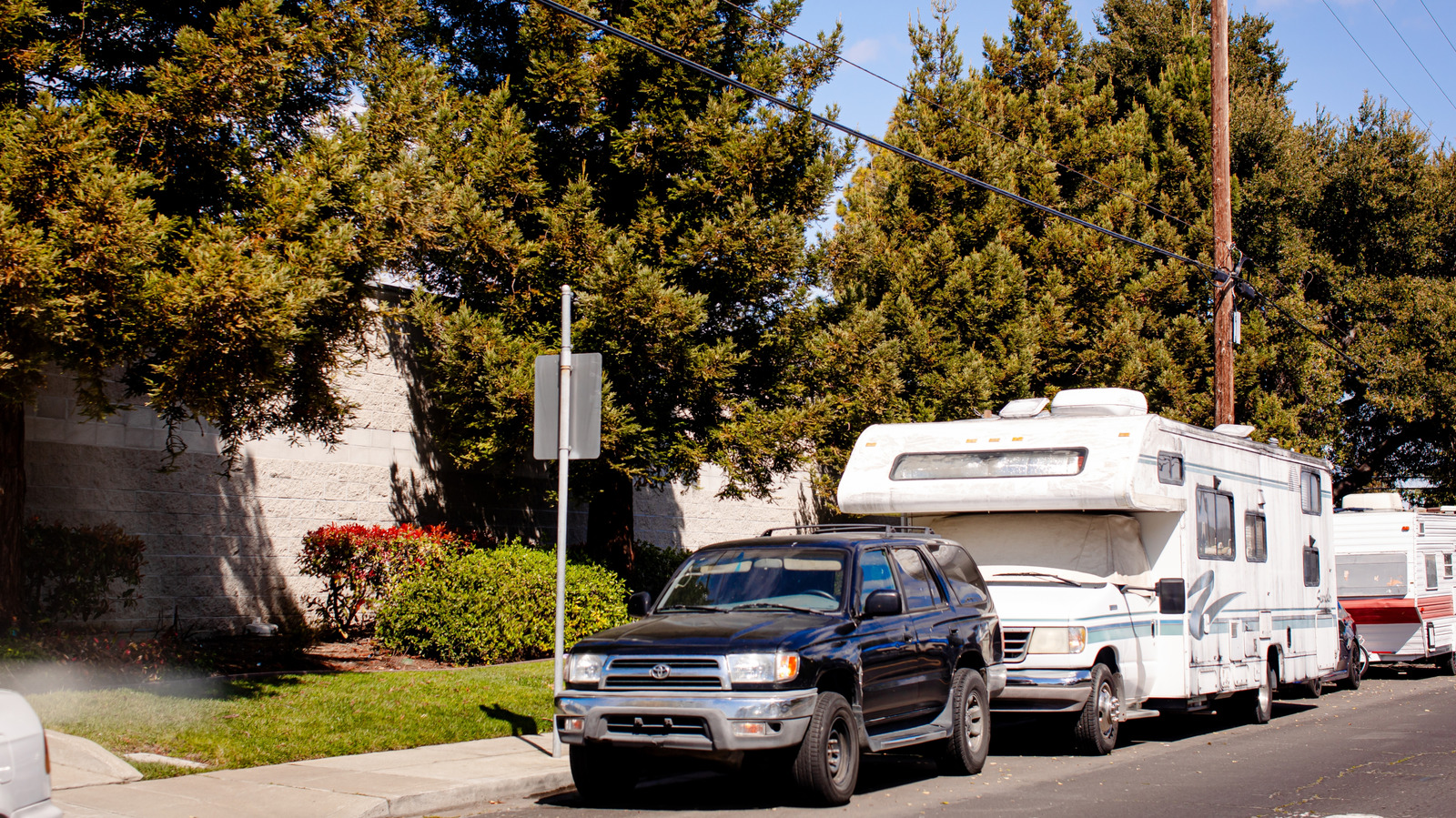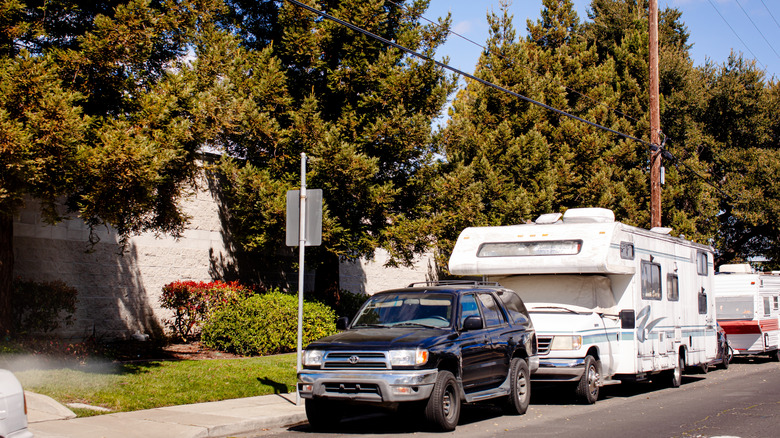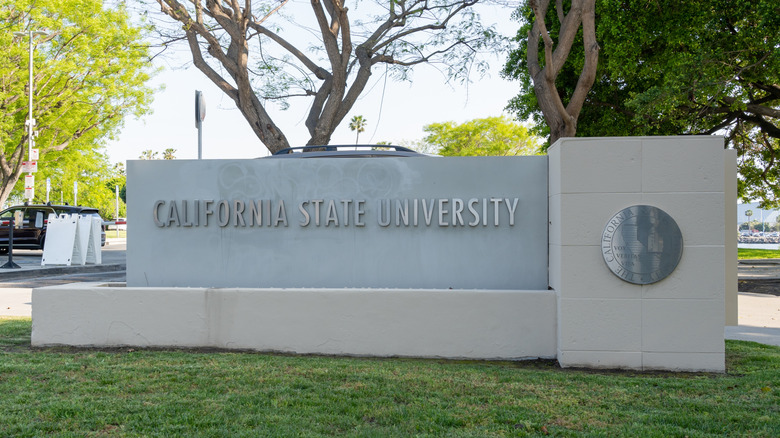California’s housing crisis is no secret. People may disagree over the solutions to the housing crisis, but by any measure, the state needs millions more housing units, and that has, in turn, fueled a homelessness crisis along with it. Building more housing is the only way to do really fix things, but you can’t make several million apartments appear overnight, which means occasionally making less-than-ideal compromises. For example, one state lawmaker has introduced a bill that would require community colleges and state universities to create programs that allow students to sleep in their cars, Politico reports.
The state is already working on increasing funding for student and faculty housing, as well as allowing developers to build housing more quickly, and those are objectively better for everyone in the long term. Current students, however, need help immediately, not in a few months and a few years. The numbers aren’t small, either. One in four California community college students has reportedly experienced homelessness in the last year. So while it’s far from an ideal solution, Assemblymember Corey Jackson introduced the bill to require officially sanctioned overnight parking to, at the very least, give these students somewhere safe to sleep.
Jackson, who has a doctorate in social work, understands letting students sleep in their cars won’t fix the state’s affordability crisis, but as he put it in a recent hearing, “This just deals with the harsh realities that we find ourselves in.”
Colleges and universities push back
Neither the California State University nor the community college systems support Jackson’s bill, pointing to the need for funding in order to comply, as well as the fact that it isn’t a long-term solution to the problem. Offering to exempt them from liability and ensure funding is available before they’re required to implement a plan hasn’t done much to change their minds, either. “It’s just a difference of opinion,” Jackson told Politico. “I believe that we are in a housing crisis. We are in a homelessness crisis, and so every single agency needs to do their part to help with the issue.”
While Jackson may not have the support of the state’s colleges and universities, he does have the support of the Student Senate for California Community Colleges, a state student advocacy group. As SSCCC President Ivan Hernandez told Politico, “We’re trying to ensure that there is a way for our students to feel safe in these difficult moments.”
It also isn’t like any of the supporters of this bill believe students should be forced to sleep in their cars. The way they see it, if they have to sleep in their cars anyway, the very least the colleges and universities they attend can do is give them a place they can do so safely. It also isn’t like this idea appeared out of nowhere. It’s based on a pilot program implemented by Long Beach City College that’s already seen success. As Politico put it:
Without a sanctioned, on-campus parking program, students are left with no other option but to sleep in their cars somewhere off-campus where they might not be welcome, according to Jackson.
Supporters make clear the measure is not intended to be a permanent solution to the affordability crisis, but with rent in California more than 30 percent higher than the national average, the situation is dire.
“This just deals with the harsh realities that we find ourselves in,” Jackson said during a recent hearing.
Success at Long Beach City College
If you thought the idea of California community colleges letting students experiencing homelessness sleep in their cars overnight sounded familiar, you’re probably remembering the Long Beach City College program. As we reported back in 2021, when LBCC learned about 70 of its students were sleeping in their cars, Mike Muñoz, the college’s superintendent-president, decided to do one of the few things he had the power to do — ensure they could sleep in their cars safely on campus:
Mike Muñoz, the college’s superintendent-president, said the school is closing in on a contract to provide 422 campus housing beds by 2028 — but that immediate needs can’t wait. Muñoz said he experienced housing insecurity as a single father going through college and at times resorted to sleeping in his car.
“I know what that feels like,” Muñoz said. “For us it was looking at the data in that moment and saying, ‘Hey, we know 70 students with real names and ID numbers that are sleeping in their cars.'”
While building student housing would cost millions and take years, providing security guards at an on-campus parking lot where students would also have access to electricity, bathrooms and internet was relatively inexpensive and easy to implement. LBCC didn’t just provide those students with a place to sleep safely, either. They also provided case management services to help them transition into more stable, permanent housing. The program reportedly cost the community college about $200,000 per year, and with 34 students enrolled for the 2023-2024 school year, that works out to less than $6,000 per student.
As Muñoz told Politico, some campus officials acted like the “sky [was] falling,” and that “all these bad things are going to happen if you open up structures and let students sleep.” In the end, he said, “None of those things happened.” They don’t even have a separate security team for the site anymore, instead relying on the campus police that already exist.
Will it actually happen?
Jackson’s bill has already passed the Assembly Higher Education Committee, but it still faces plenty of obstacles before it becomes law. Last year, California’s Senate Appropriations Committee blocked a similar proposal from Jackson because, as it turns out, helping the state’s most vulnerable students would cost money. Similarly, a 2019 proposal to allow students to sleep in their cars also failed. Also, if you know anything about California politics, you know that a D next to an official’s name is no guarantee they’ll support doing something to help people experiencing homelessness. Unless you have a silver bullet that will solve homelessness in one shot — and most importantly, without upsetting the wealthy homeowners who worship at the altar of maximizing property values — good luck getting anything through.
In this case, there are also concerns that any money spent on securing spots for students to sleep in their cars overnight would come out of funds already allocated for other student services. “Establishing an overnight student parking program would require significant financial and administrative resources to ensure that students have a safe, clean and secure place to sleep at night,” Nune Garipian, policy and advocacy manager with the Community College League of California, told lawmakers. “Our colleges, unfortunately, just do not have these resources available.”
After talking with housing-insecure students throughout the state, though, SSCCC President Hernandez told Politico even though he understands others’ concerns it isn’t the students “creating the problem.” The way he sees it, implementing Jackon’s proposal would be “just basically addressing the problem that is currently happening.”






